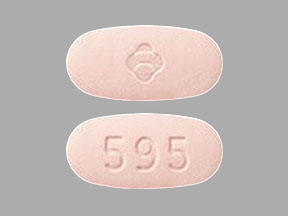Letermovir Disease Interactions
There are 2 disease interactions with letermovir.
Letermovir (applies to letermovir) hepatic dysfunction
Moderate Potential Hazard, Moderate plausibility. Applicable conditions: Liver Disease
The use of letermovir is not recommended for patients with severe liver dysfunction (Child-Pugh C). No dosage adjustment of letermovir is required for patients with mild or moderate liver dysfunction (Child-Pugh A or B).
References
- (2023) "Product Information. Prevymis (letermovir)." Merck Sharp & Dohme LLC, SUPPL-11
Letermovir (applies to letermovir) renal impairment
Moderate Potential Hazard, Moderate plausibility. Applicable conditions: Renal Dysfunction
Hydroxypropyl betadex present in the IV letermovir formulation is mainly eliminated by glomerular filtration. Decreased elimination of hydroxypropyl betadex has been reported in patients with severe renal dysfunction. Serum creatinine levels should be closely monitored in patients with CrCl less than 50 mL/min using letermovir injection because accumulation of the IV vehicle (hydroxypropyl betadex) could occur. In patients with CrCl greater than 10 mL/min, no dosage adjustment of letermovir is required based on renal dysfunction. The safety of letermovir in patients with end-stage renal disease (CrCl less than 10 mL/min), including patients on dialysis, is unknown.
References
- (2023) "Product Information. Prevymis (letermovir)." Merck Sharp & Dohme LLC, SUPPL-11
Letermovir drug interactions
There are 397 drug interactions with letermovir.
More about letermovir
- letermovir consumer information
- Check interactions
- Compare alternatives
- Reviews (1)
- Side effects
- Dosage information
- During pregnancy
- Drug class: miscellaneous antivirals
- Breastfeeding
- En español
Related treatment guides
Drug Interaction Classification
| Highly clinically significant. Avoid combinations; the risk of the interaction outweighs the benefit. | |
| Moderately clinically significant. Usually avoid combinations; use it only under special circumstances. | |
| Minimally clinically significant. Minimize risk; assess risk and consider an alternative drug, take steps to circumvent the interaction risk and/or institute a monitoring plan. | |
| No interaction information available. |
Further information
Always consult your healthcare provider to ensure the information displayed on this page applies to your personal circumstances.


